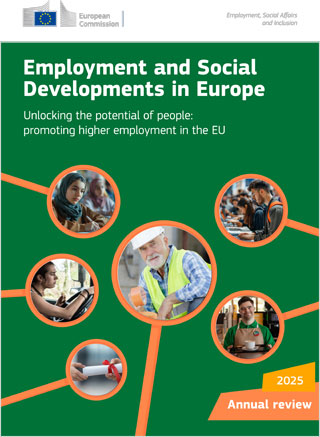- Version
- September 2025
- Availability
- Externally available

- Version
- September 2025
- Availability
- Externally available
The annual Employment and Social Developments in Europe (ESDE) review provides up-to-date economic analysis of employment and social trends in Europe and discusses related policy options.
Addressing labour shortages and bolstering the sustainability of labour supply in the European Union require increased labour force participation alongside combating unemployment and underemployment. This report analyses the 51 million EU residents (aged 20-64) outside the workforce. It identifies women, older persons, and migrants as the primary groups, comprising over 80% (about 41 million people) of the total population currently kept out of the labour market by various obstacles. These include disability, care responsibilities, early retirement, and benefit traps. Effective policies to enhance participation require person-centred and holistic approaches.
Women benefit from affordable care services, addressing institutional work disincentives, and from equal sharing of unpaid work.
Pension reforms and flexible work arrangements contribute to increased labour market participation of older workers.
Migrant integration can be facilitated through skills development and recognition and simplified access to work.
Persons with disabilities benefit from supported employment and quotas.
Addressing part-time to full-time employment barriers could unlock an additional labour supply potential of 2.3 million, enhancing EU labour market sustainability.
Publisher: European Commission